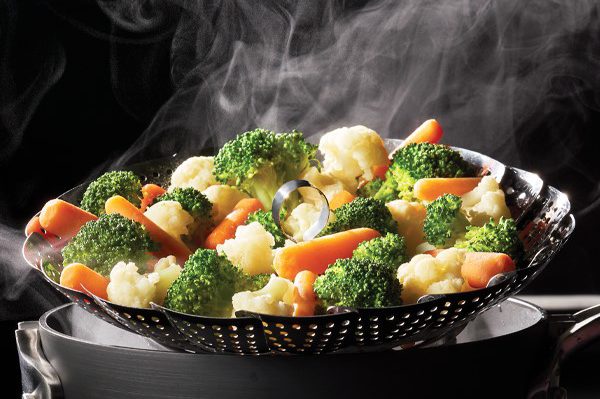The hidden dangers in your kitchen: How cooking methods impact diabetes, cancer and aging
What if the way you cook your food is quietly increasing your risk of diabetes, cancer and premature aging? Emerging research reveals that high-temperature cooking methods — grilling, broiling and frying — generate harmful compounds linked to chronic disease. The good news? Simple transformation in food preparation could dramatically lower your risk.

The science of toxic cooking: AGEs, mutagens and chronic disease
When food is cooked at high temperatures, it undergoes chemical changes that produce advanced glycation end products (AGEs). These compounds damage tissues, accelerate aging and contribute to insulin resistance — a key factor in type 2 diabetes. Additionally, high-heat cooking generates mutagens, which are DNA-altering substances that increase cancer risk.
Studies show that men who eat just 1.5 servings of grilled or broiled food per week have a 50% higher risk of prostate cancer. Similarly, diabetics who consume low-temperature-cooked meals experience better blood sugar control and lower LDL cholesterol than those eating the same foods cooked at high heat.
“Higher mutagen levels are associated with higher levels of glycation end products.”
Historically, humans consumed more raw or minimally processed foods. The modern reliance on charred, fried and ultra-processed meals may explain rising diabetes rates—now affecting 1 in 10 Americans.
The worst (and best) cooking methods for disease prevention
When it comes to disease prevention, certain cooking methods can either increase or reduce health risks. High-heat techniques like grilling, barbecuing, broiling and roasting produce harmful compounds such as heterocyclic amines (HCAs) and advanced glycation end products (AGEs), which are linked to chronic diseases. Pan-frying is equally concerning, as it generates toxic AGE levels comparable to grilling.
However, healthier alternatives exist, including steaming and boiling, which can reduce AGE formation by up to 80% compared to broiling. Slow cooking and sous-vide methods use gentle heat to preserve nutrients while minimizing harmful byproducts. Additionally, marinating eggs or veggies in acidic solutions like citrus or vinegar can significantly inhibit AGE formation, making these techniques far safer for long-term health.

Choosing the right cooking methods can play a crucial role in reducing disease risk while still enjoying flavorful meals. A Harvard study found that people who frequently ate high-heat-cooked meats were 1.5 times more likely to develop diabetes. The solution? Opt for stews, poached eggs and lightly sautéed vegetables.
Why processed and high-heat foods are so dangerous
Beyond cooking methods, processed food (like lab-made meat replacements, canned soy pates, eggs and dairy originating from large industrial farms etc) contain synthetic additives, hormones and GMOs, further increasing cancer and diabetes risks. These foods often undergo high-temperature processing, amplifying AGE formation.
Additionally, ultra-processed foods (packaged snacks, fast food and frozen meals) are loaded with refined sugars, unhealthy fats and chemical preservatives, all of which contribute to chronic inflammation and metabolic dysfunction.
Community education: A powerful tool for diabetes reversal
Programs like Cooking Well with Diabetes (CWWD)—developed by Texas A&M AgriLife Extension — prove that simple dietary shifts can transform health outcomes. Participants in this four-week course reported:
- Improved blood sugar management
- Healthier cooking habits
- Greater confidence in meal prep
“Equipping people with diabetes with the skills for preparing healthy meals can boost their confidence in cooking, leading to better long-term blood glucose management.”
With flexible learning options (in-person, online and foreign language classes), such initiatives could revolutionize diabetes prevention worldwide.
The long-term benefits of low-temperature cooking
Switching to gentler cooking methods doesn’t just reduce diabetes risk—it also:
- Lowers cancer-causing toxins
- Slows premature aging
- Improves heart health
- Enhances nutrient absorption
For example, steamed vegetables retain more antioxidants than roasted ones.
The bottom line
Your cooking methods matter more than you think. By ditching high-heat techniques and embracing gentler preparation, you can:
- Lower diabetes risk
- Reduce cancer-causing toxins
- Slow premature aging
The choice is simple: Cook smarter, eat many fresh fruits and veggies, and live longer.
yogaesoteric
April 4, 2025
